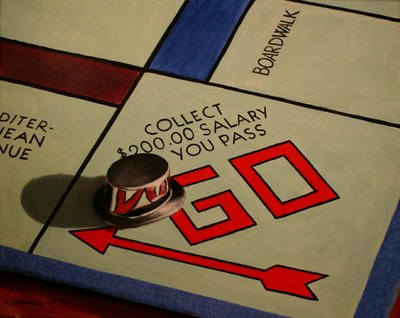Tuesday, February 17: High-Heeled Gumshoe
Melodie’s entry today was written without the “benefit” of my essay yesterday. She deals with one aspect of the question much more thoroughly than I did, and comes much closer to answering Gary’s question in a constructive way. —JLW
THERE IS NO SQUARE ONE
by Melodie Johnson Howe
Last Wednesday in a reply to Rob’s column, Gary said, “I’d like to see some comments on where to start a story.”

This is an important question. It seems obvious that you start a story at the beginning. But many stories don’t form themselves in a writers head so neatly. And what is “the beginning?” Do you start with a murder? Do you start earlier and lead up to the death? Do you begin after the murder? Each choice gives the story a different slant or perspective. So which is the best for your particular story?
I’m writing a Diana Poole novel. I didn’t have an opening. I started in what I thought was going to be a scene in a later chapter. I just wanted to get the book going. Words on paper. The scene involved Diana in action. It was also retrospective and had other characters that I hadn’t quite figured out yet.
I showed the scene to a writer friend and she said, “Melodie, this is wonderful, it should open the novel.” I looked at her as if she was crazy and, though we write in similar genres, she just didn’t understand how to start a real mystery. Poor friend.
I went home wrote Chapter One at the top of the scene. And immediately saw what my wise and brilliant friend saw. This scene was a frame for the novel and introduced the reader to the main character in mid-action and thought. I did not have to explain Diana Poole in a passive way. The reader would understand her by her actions, reactions, and her observations. It also brought in other characters that would become important forcing me to figure out just who they were.
The point I’m trying to make is that it can be easy to begin your novel or short story too soon. If you put your character in action he/she is s forced to react showing the reader what kind of character he/she is while moving the plot. The action doesn’t have to be a chase or a fight. The action can be walking into a bar (“Red Wind”), though Chandler sets the tone and atmosphere of the story with that extraordinary first paragraph describing what the Santa Ana winds do to people. That paragraph is not just description. There is tension, the threat of a wife killing her husband.
Many writers say they can’t start unless they have their opening; but I think these writers would admit that after reading their completed draft they went back and changed that opening. Or as friend of mine just did, omit it. Sometimes your opening pages are just a way to get you started.
Mickey Spillane said,” The first chapter sells the novel. The last chapter sells the next novel.”
It’s the same for the short story. The first page or even the first paragraph has to grab the reader. Readers are used to seeing videos, fast cut movies and reading blogs. Time has sped up for all of us. Historical writers, because they must capture the style of the time they are writing in, have more leeway. But I’m sure that JLW tries to find a balance between the old, more languid, sense of time and today’s intense sense of time.
If you don’t like how your novel or short story is beginning take a look at the second chapter, or the second, third, fourth, page of your short story, and see if your opening lurks there. Maybe you should do this even if you like your opening.
My advice about how to start? Don’t start at the beginning.




















Melodie, I once heard that the start of a story should always be called the “opening” rather than the “beginning,” for the very reason you mentioned. You don’t want to start at the beginning — you want to start as far into the story as you can.
Great column.
I’ve been clearing away a slush pile as an assistant editor for a small anthology, and I have to say that the question “Where do I start my story?” really needs to be addressed. Right now, around 70% of our rejection slips are being written for stories that failed to open properly.
I agree with John Floyd on this one: don’t tell them to start at the beginning; start at the opening of the story.